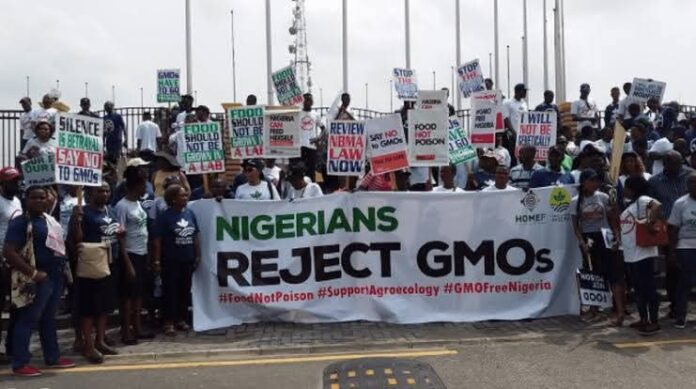By: Joy Musa
In recent years, African agriculture has faced mounting pressure from global seed corporations promoting genetically modified organisms (GMOs) as the future of farming. But behind the curtain of promised abundance and innovation lies a troubling truth these seeds are not designed to serve the farmer. They are engineered to serve corporate profit.
Many GMO seeds are designed to be non-regenerative. Once planted and harvested, they cannot be reused in the next season. This forces farmers into a cycle of dependency, having to return to the same corporations to purchase seeds every planting season. Unlike traditional seeds, which can be saved and replanted year after year, GMO seeds are a commercial product one that expires with each crop.
Even the few GMO seeds that are technically replantable are guarded by strict patent laws. Multinational companies claim intellectual ownership of these seeds and enforce their rights aggressively. Farmers who replant without authorization even unknowingly can face lawsuits and criminal charges. The field, once a symbol of freedom and sustenance, becomes a legal minefield.
In African nations where the majority of farmers are smallholders struggling to make ends meet, this seed system is not just unsustainable it’s exploitative. Instead of empowering our farmers, GMO dependency lines the pockets of global conglomerates and undermines food sovereignty. The very heart of African agriculture our ancestral right to grow and harvest from the land is being commodified.
We must protect our farmers, our food, and our future. This means investing in indigenous seed banks, supporting agroecological methods, and demanding transparent policies that put farmers first not patents. Let us amplify the voice of rural communities and challenge the economic stranglehold of GMO monopolies.
Africa must say NO to GMO exploitation.







